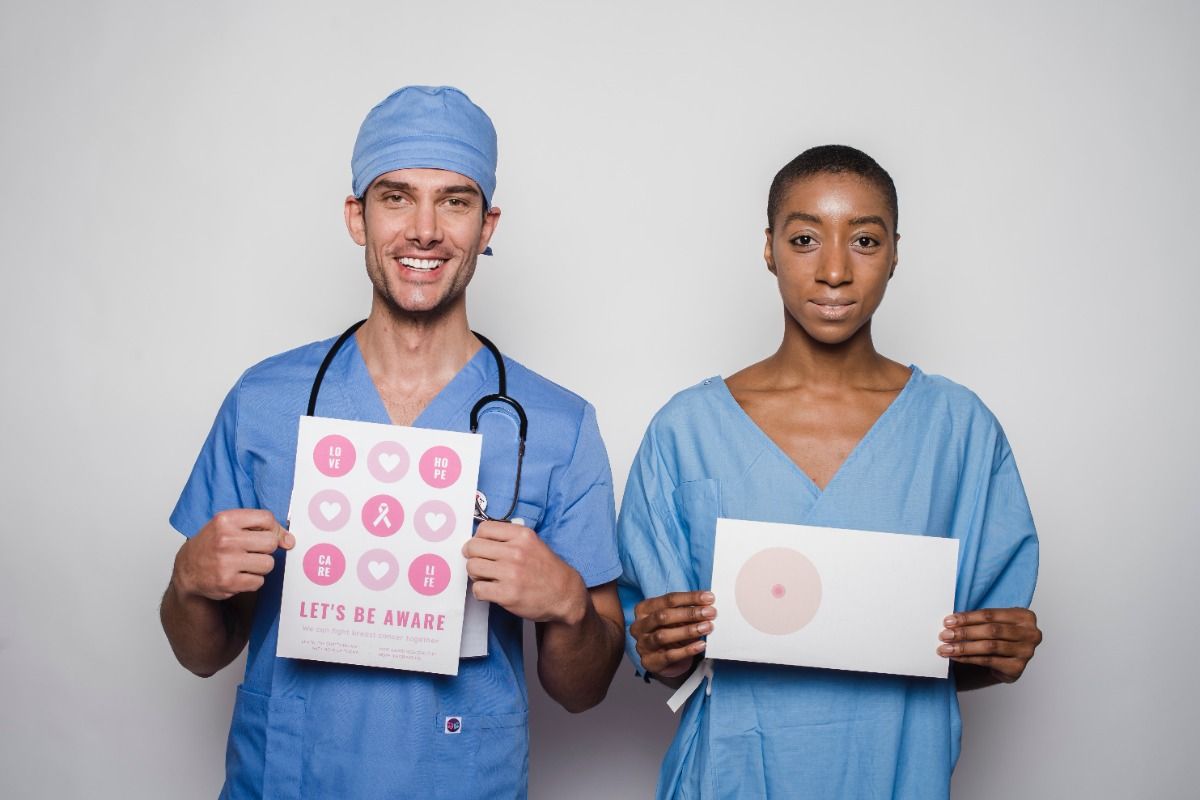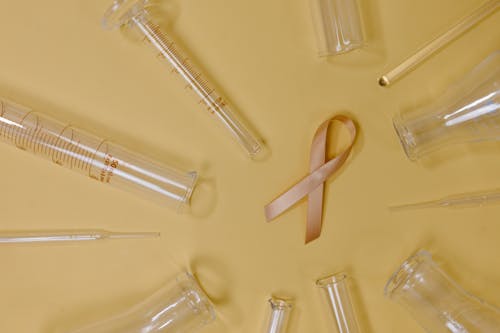
Spreading awareness about the stages of breast cancer is important because if you find out a loved one has been diagnosed with breast cancer, the stage they caught it at often makes all the difference.
When you catch breast cancer early, the survival rate is incredibly high, and you and your loved ones can remain hopeful.
The reason why breast cancer is a form of cancer that can be caught early is because there are many signs and symptoms of breast cancer a person can notice. This is especially true if you do regular breast self-examinations. Other forms of cancer have virtually no symptoms at all, and with some forms of cancer, there are no symptoms at all until you’re already at stage 3 or stage 4. This means that sometimes, with some types of cancer, you won’t get any symptoms until it’s too late. Or, you’ll only get very subtle symptoms that are easy to ignore, such as a change in the colour of your urine. Because some symptoms of cancer are very subtle, cancer awareness and education is crucial.
October is Breast Cancer Awareness Month, which is why people are spreading knowledge about breast cancer this month. However, it’s important to educate yourself about all forms of cancer and their symptoms, so that cancers with less obvious symptoms than breast cancer can still be caught early enough to treat. If you’re currently trying to increase your knowledge about breast cancer specifically, it’s wise to educate yourself on the stages of breast cancer.
Stages of Breast Cancer: An Overview
Most people are aware that there are 4 main stages of breast cancer, but organisations like the National Breast Cancer Foundation have broken it down further into stage 0, stage 1A and 1B, stage 2A and 2B, stage 3A, 3B, and 3C, and stage 4.
Below, we’ll do an overview of each of the stages of breast cancer to be aware of:

Stage 0
Stage 0 refers to non-invasive breast cancer. In such cases, there are no cancer or abnormal non-cancerous cells that migrate from the part of the breast where they first formed. They are also called carcinoma in situ, which stands for cancer in the original place.
Examples of stage 0 breast cancer:
- Ductal carcinoma in situ
- Lobular carcinoma in situ
- Paget disease in nipple
Stage 1: Early Stage
The early stages of cancer are sometimes known as small invasive cancer, which means the cancer cells have spread to the surrounding breast tissue.
Stage 1 cancer can occur with or without a tumour present. If present, tumours in this stage are smaller than 2cm.
Types of stage 1 breast cancer:
- Stage 1A breast cancer: Tumour is smaller than 2cm and has not spread to lymph nodes
- Stage 1B breast cancer: Lymph nodes have small clusters of cancer cells that are 0.2mm to 2.0mm with no tumour or a tumour smaller than 2cm in the breast
Stage 2: Localised
Localised cancer is an invasive cancer that has spread to the surrounding breast tissue.
Similar to stage 1 breast cancer, stage 2 breast cancer can occur with or without tumours and can include or exclude the lymph nodes.
The difference between stage 1 and 2 breast cancer is the size of the tumour.
Types of stage 2 breast cancer:
- Stage 2A breast cancer: No tumour, but cancer has spread to lymph nodes
- Stage 2A breast cancer: Tumour less than 3cm and cancer has spread to lymph nodes
- Stage 2A breast cancer: Tumour is 2cm to 5cm, but cancer has not spread to lymph nodes
- Stage 2B breast cancer: Tumour is 2cm to 5cm and cancer has spread to lymph nodes
- Stage 2B breast cancer: Tumour is larger than 5cm, but cancer has not spread to lymph nodes
Stage 3: Regional Spread
Stage 3 is more serious as the cancer has spread. Regional spread refers to spreading, invasive cancer that has reached regions beyond the original affected area of the breast. The cancer cells may reach the surrounding lymph nodes and muscles, but not the organs.
Types of stage 3 breast cancer include:
- Stage 3A breast cancer: Tumour is less than 2cm, but cancer has spread to four to nine lymph nodes
- Stage 3A breast cancer: Tumour is larger than 5cm and cancer clusters have spread to lymph nodes
- Stage 3A breast cancer: Tumour is larger than 5cm and cancer has spread to breastbone or underarm lymph nodes
- Stage 3B breast cancer: Tumour of any size and cancer has spread to lymph nodes and chest wall or breast skin
- Stage 3C breast cancer: No tumour or tumour of any size and cancer has spread to over 10 lymph nodes
- Stage 3C breast cancer: No tumour or tumour of any size and cancer has spread to collar bone lymph nodes
- Stage 3C breast cancer: No tumour or tumour of any size and cancer has spread to breastbone or underarm lymph nodes

Stage 4: Widespread Cancer
As its name suggests, widespread cancer points to cancer that has spread to other parts of the body besides the breast.
Stage 4 breast cancer is the most severe stage of breast cancer because the whole body can be affected.
If someone is diagnosed with stage 4 breast cancer, it means they caught it late. Survival rates decrease, and the person who has stage 4 breast cancer may have ignored symptoms of breast cancer.
Recognizing Symptoms of Breast Cancer
Why do some people ignore symptoms of cancer? Many people have very busy, hectic lives and it can be easy to either ignore symptoms or brush them off. Someone with a very busy schedule who is often distracted, for example, might notice a symptom of cancer and have every intention of addressing it with their doctor, but they simply forget.
Your body will try to warn you when you have cancer with certain signs and symptoms, and it’s up to you to listen to your body and take notice of any changes.
Some of the signs and symptoms of breast cancer include feeling an abnormal lump in your breast, redness of the skin on your breast, or change in the skin on your breast such as skin dimpling, peeling, scaling or flaking skin around the nipple.
If you want to learn which (if any) types of cancer you’re genetically at higher risk of developing, get a comprehensive health report based on your DNA with CircleDNA.






